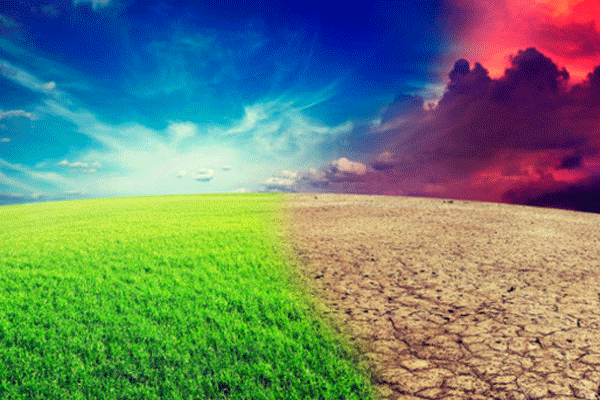
In any given country, situation and set-up, voices that are always bold and loud enough are normally from the government, political leadership, as well as those from the civil society complemented by the media. Conspicuous by their absence are voices from the wretched, downtrodden, the ostracised and those from the peripheries and backyards of society. These are hardly or never heard, or do they ever speak, one wonders?
guest column: Peter Makwanya
The downtrodden or the outright cursed, despite being in the periphery, are the ones ever interacting with climate change shocks and impacts. They are a passive lot, whose views, knowledge and experiences have been highly distorted and misrepresented.
The “passive lot”, those whose voices cannot go further than the walls of their substandard dwellings, continue to wonder about the humanity of mankind. From the government’s point of view and the elite, these low-level people are not supposed to speak out, but to be told, lectured and sometimes intimidated by the all-knowing politicians. The same applies to the media, which sees these people as empty vessels and gullible, ready to accept anything peddled to them.
Despite the fact that people in the developing countries bear the brunt of climate change, but have lots of climate wisdom, they lack or are deprived of the climate voice and activism. With the floods and torrential rains that have been battering and ravaging the infrastructure at will, it is largely the voiceless whose substandard homes have been washed away and buried under the mud. It is also largely the poor, whose children can no longer go to school, while they have been made climate destitutes, internally-displaced and refugees in their own country. These are the same people in the eyes of God, if they are indeed people, in the eyes of the government and politicians, who have been breathing all the greenhouse gases polluting our environment. The largely poor people always dream of cleaner energy supplies, cleaner, safe and habitable environment, but sadly the political leadership seems to care only about pocketing these people’s votes.
Although climate change is cross-cutting, it has been proven to have a unique impact on the vulnerable and low-income populations, who largely constitute women and children. Droughts and floods which have been worsened by climate change, have taken their toll on the poor’s livelihoods. But shockingly, the poverty-stricken, the vulnerable, the down-trodden and the marginalised have no influence on climate change policy formulation and worse still, climate-related decisions. Some still live in perpetual cultural bondage were, in this 21st century women are not allowed to participate in conversations in the presence of men. So in this view, it is an intricate vicious cycle where even those enmeshed in poverty also have this pulling down syndrome. Why? Because they have mastered and internalised the abuses they receive from those in authority, and have taken them as the norm. These vulnerable always directly experience the vices of climate change, but are not even closer and let alone consulted when climate solutions are being discussed.
Even the type of clothes that these poor people put on, in their peripheries of society, do a lot to strip them of their dignity, freedom and confidence. As such, they always feel like the biblical Adam; they are stark naked and exposed. When floods come, they destroy their homes and leave them with nothing, not even hope in their hopeless situations. But if consulted, these people can deliver sustainable climate action, knowledge and protection. With their indispensable climate wisdom, these people can contribute to successful adaptation and mitigation initiatives.
Climate change experts always talk of food security, disaster management, clean energy provision, but not so often do they talk of human security, which includes taking care of the concerns of the poor and the voiceless. In many developing countries, it is indeed clear that lack of climate activism retards national development. More and more people continue to wonder about the meaning of mankind, if it is indeed kind enough when it cannot afford the ordinary people opportunities to speak for themselves, be heard and bolster their voices.
- Chamisa under fire over US$120K donation
- Mavhunga puts DeMbare into Chibuku quarterfinals
- Pension funds bet on Cabora Bassa oilfields
- Councils defy govt fire tender directive
Keep Reading
What we do not need are the omniscient voices of the politicians and their propaganda mouthpieces. We need climate voices to conquer climate injustices and impacts, hence the climate voices need to be re-activated and shared as they are currently suppressed and not reachable. The widening gaps between the voiceless and the noisemakers need to be bridged, in order to foster inclusivity. It is also the spirit of inclusion which is necessary to end climate-related misfortunes and poverty. Our national development institutions are not fostering systems of on inclusion as they have contributed to institutionalised poverty.
Peter Makwanya is a climate change communicator. He writes in his own capacity and can be contacted on: [email protected]











